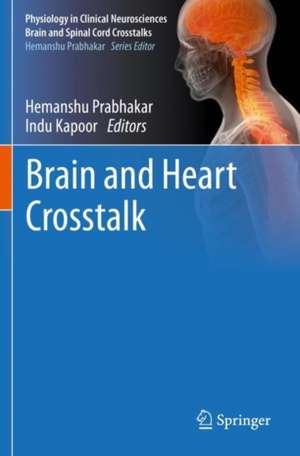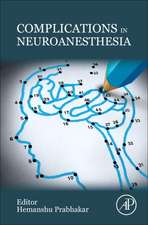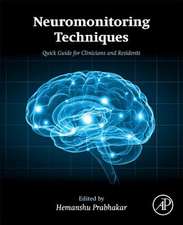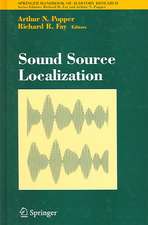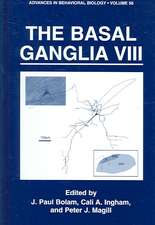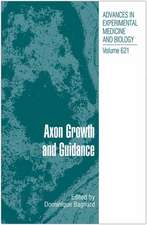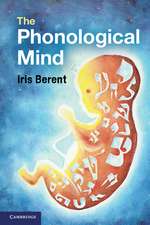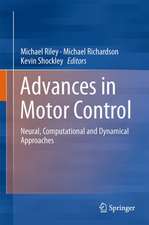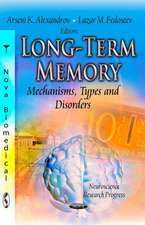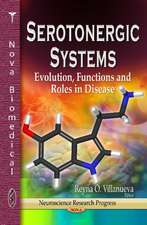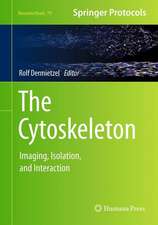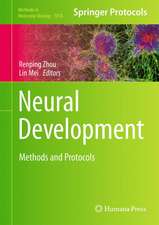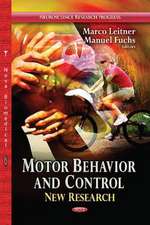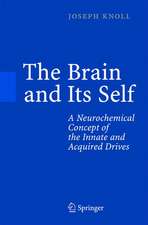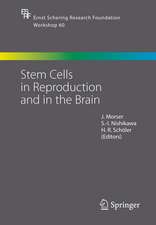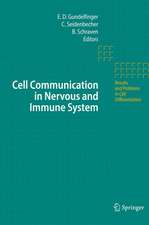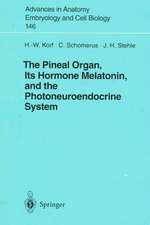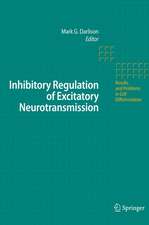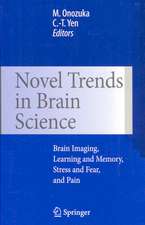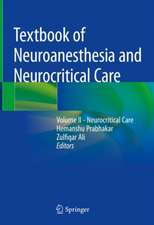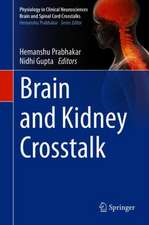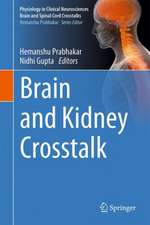Brain and Heart Crosstalk: Physiology in Clinical Neurosciences – Brain and Spinal Cord Crosstalks
Editat de Hemanshu Prabhakar, Indu Kapooren Limba Engleză Paperback – 16 iun 2021
| Toate formatele și edițiile | Preț | Express |
|---|---|---|
| Paperback (1) | 633.53 lei 3-5 săpt. | |
| Springer Nature Singapore – 16 iun 2021 | 633.53 lei 3-5 săpt. | |
| Hardback (1) | 886.62 lei 3-5 săpt. | |
| Springer Nature Singapore – 16 iun 2020 | 886.62 lei 3-5 săpt. |
Preț: 633.53 lei
Preț vechi: 745.32 lei
-15% Nou
Puncte Express: 950
Preț estimativ în valută:
121.24€ • 131.65$ • 101.84£
121.24€ • 131.65$ • 101.84£
Carte disponibilă
Livrare economică 01-15 aprilie
Preluare comenzi: 021 569.72.76
Specificații
ISBN-13: 9789811524998
ISBN-10: 9811524998
Pagini: 130
Ilustrații: XIII, 130 p. 35 illus., 30 illus. in color.
Dimensiuni: 155 x 235 mm
Greutate: 0.23 kg
Ediția:1st ed. 2020
Editura: Springer Nature Singapore
Colecția Springer
Seria Physiology in Clinical Neurosciences – Brain and Spinal Cord Crosstalks
Locul publicării:Singapore, Singapore
ISBN-10: 9811524998
Pagini: 130
Ilustrații: XIII, 130 p. 35 illus., 30 illus. in color.
Dimensiuni: 155 x 235 mm
Greutate: 0.23 kg
Ediția:1st ed. 2020
Editura: Springer Nature Singapore
Colecția Springer
Seria Physiology in Clinical Neurosciences – Brain and Spinal Cord Crosstalks
Locul publicării:Singapore, Singapore
Cuprins
Chapter 1. Neurophysiology of Heart.- Chapter 2. Physiology of Cardiovascular System.- Chapter 3. THE Brain-Heart Crosstalk.
Notă biografică
Dr. Hemanshu Prabhakar MBBS, MD, PhD is currently working as a Professor at the Department of Neuroanaesthesiology and Critical Care at the All India Institute of Medical Sciences, New Delhi. He has research experience spanning over 20 years, and is a member of numerous national and international societies. His extensive research in the field of neuroanaesthesia and critical care has been published in various national and international journals. Dr.Prabhakar is an eminent author and written several books. He received the AIIMS Excellence Award 2012 for his contributions to academia. He features in the Limca Book of Records 2019.
Dr. Indu Kapoor holds an MBBS from the Lady Hardinge Medical College, and an MD in Anesthesiology from University College of Medical Sciences Delhi, and is currently an Associate Professor at the department of Neuroanaesthesiology and Critical Care. She has published more than 75 research papers in national and international journals, and contributed numerous book chapters. She also received the prestigious Dr. TN. JHA Memorial award from the Indian Society of Anaesthesiologists and the Smt. Chandra and Sh. Narayan Wadhwani memorial award. She has edited three books related to neuroanesthesia, neurotrauma and geriatric neuroanesthesia. She is also a reviewer for national as well as international journals.
Dr. Indu Kapoor holds an MBBS from the Lady Hardinge Medical College, and an MD in Anesthesiology from University College of Medical Sciences Delhi, and is currently an Associate Professor at the department of Neuroanaesthesiology and Critical Care. She has published more than 75 research papers in national and international journals, and contributed numerous book chapters. She also received the prestigious Dr. TN. JHA Memorial award from the Indian Society of Anaesthesiologists and the Smt. Chandra and Sh. Narayan Wadhwani memorial award. She has edited three books related to neuroanesthesia, neurotrauma and geriatric neuroanesthesia. She is also a reviewer for national as well as international journals.
Textul de pe ultima copertă
This book discusses the underlying mechanisms connecting the brain and heart. The physiology of the brain is such that it is easily affected by any altered physiology of other systems, which in turn may compromise cerebral blood flow and oxygenation. Together, the brain and heart control our body systems, allowing them to function automatically. This interaction between the brain and other systems makes it important for us to understand how any kind of injury to the brain can produce complications in remote organs or systems, such as the heart. The central nervous system is responsible for vegetative function and is central to homeostasis. Further, central nervous system responses are linked to the ongoing function of other organ systems e.g. feeding, thermoregulation, reproduction and muscle activity. It is therefore logical that neural control of the cardiovascular system must also interact with the neural control of other organ systems. This book explains in detail stressed cardiac conditions, discussing the pathophysiology and proposed treatment, and also describing lesser-known crosstalks between the acutely or chronically affected brain and heart.
Caracteristici
Comprehensively discusses the physiological effects of the injured brain on remote organs such as the heart Describes the pathophysiology of stress myopathy and the therapeutic approach Discuses the conflicts between brain and heart in clinical management
